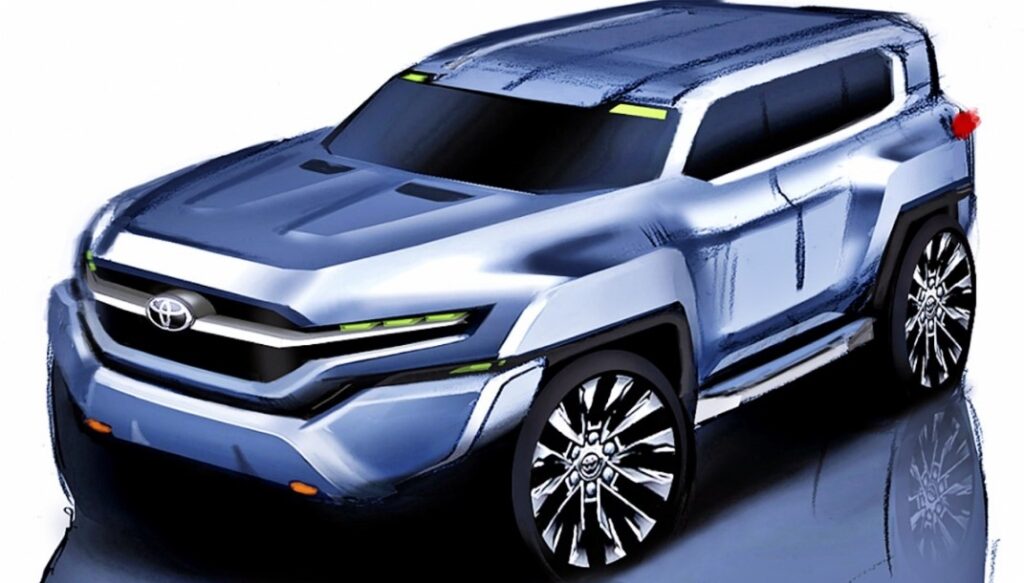The 2025 Toyota 4Runner: Fuel Efficiency In A Rugged Package?
By admin / May 31, 2024 / No Comments / 2025

The 2025 Toyota 4Runner: Fuel Efficiency in a Rugged Package?
The Toyota 4Runner, a rugged and reliable SUV known for its off-road prowess, has long been a favorite among adventure enthusiasts and families alike. While its off-road capabilities are undeniable, the 4Runner’s fuel economy has historically been a point of contention, especially in comparison to its more fuel-efficient competitors.
With the arrival of the 2025 model year, Toyota is facing increasing pressure to address this issue. The automotive landscape is rapidly shifting towards electrification and improved fuel efficiency, and the 4Runner, a staple in the Toyota lineup, needs to adapt to stay relevant.
This article delves into the anticipated fuel economy of the 2025 4Runner, exploring the factors influencing its performance and comparing it to previous models. We’ll also examine the potential impact of new technologies and powertrain options on the 4Runner’s future fuel efficiency.
Understanding the 4Runner’s Fuel Economy History:
The 4Runner’s fuel economy has always been a trade-off for its ruggedness and off-road capabilities. Its body-on-frame construction, which provides exceptional strength and durability, also adds significant weight, impacting fuel efficiency.
The 2023 model year saw the introduction of a new 4.0-liter V6 engine, replacing the previous 4.0-liter V6. While this new engine boasted improved power and torque, it did not offer a significant improvement in fuel economy.
The 2025 4Runner: A Shift Towards Efficiency?
With the 2025 model year, Toyota is expected to introduce a range of changes aimed at enhancing the 4Runner’s fuel efficiency. While specific details remain under wraps, here are some key factors that could influence the 2025 4Runner’s fuel economy:
1. Hybrid Technology:
The most significant change expected for the 2025 4Runner is the introduction of a hybrid powertrain option. This hybrid system, likely a combination of a gasoline engine and an electric motor, could significantly improve fuel economy while maintaining the 4Runner’s off-road prowess.
2. Improved Aerodynamics:
The 2025 4Runner may feature subtle aerodynamic improvements, such as redesigned front and rear bumpers, underbody panels, and possibly a slightly more streamlined body shape. These changes, though seemingly minor, can contribute to improved fuel efficiency by reducing drag.
3. Weight Reduction:
Toyota is likely to explore ways to reduce the 4Runner’s weight, potentially through the use of lighter materials in certain components. While maintaining the 4Runner’s ruggedness is paramount, weight reduction can have a noticeable impact on fuel efficiency.
4. Advanced Engine Technologies:
The 2025 4Runner’s gasoline engine may incorporate advanced technologies like direct injection, variable valve timing, and cylinder deactivation. These technologies can optimize combustion efficiency and reduce fuel consumption.
5. Enhanced Transmission Efficiency:
Toyota may introduce a new transmission with improved efficiency, possibly an eight-speed automatic, to optimize gear ratios and reduce fuel consumption.
Anticipated Fuel Economy Figures:
While concrete figures are yet to be released, based on the expected changes and industry trends, the 2025 4Runner could achieve a significant improvement in fuel economy compared to previous models.
The Hybrid 4Runner:
The hybrid powertrain option is expected to offer the most substantial improvement in fuel economy. Estimates suggest that the hybrid 4Runner could achieve a combined fuel economy rating of around 25-30 mpg, a notable increase from the current model’s 18-21 mpg rating.
The Gasoline-Powered 4Runner:
Even the gasoline-powered 4Runner is likely to benefit from the aforementioned changes. The combination of aerodynamic improvements, weight reduction, and advanced engine technologies could lead to a modest improvement in fuel economy, potentially reaching 20-22 mpg combined.
Comparison to Competitors:
While the 2025 4Runner’s fuel economy is expected to improve, it still may not be as fuel-efficient as some of its competitors. SUVs like the Jeep Wrangler, Ford Bronco Sport, and even the Toyota RAV4 offer better fuel economy figures, especially with their hybrid and plug-in hybrid options.
The Impact of Fuel Efficiency on the 4Runner’s Future:
The 2025 4Runner’s improved fuel economy could have a significant impact on its future success. Here’s how:
1. Increased Market Appeal:
Improved fuel efficiency will make the 4Runner more appealing to a wider range of buyers, particularly those seeking a balance between off-road capability and fuel economy.
2. Reduced Operating Costs:
Lower fuel consumption translates to lower operating costs, making the 4Runner more affordable to own and operate over time.
3. Enhanced Environmental Performance:
Increased fuel efficiency contributes to reduced emissions, aligning the 4Runner with growing environmental concerns and regulations.
4. Competitive Advantage:
While the 4Runner may still not be the most fuel-efficient SUV in its segment, improved fuel economy will help it remain competitive in a market increasingly focused on efficiency.
Conclusion:
The 2025 Toyota 4Runner is poised to offer improved fuel economy without compromising its rugged nature. The introduction of a hybrid powertrain option, combined with other efficiency-enhancing measures, will likely make the 4Runner a more appealing and cost-effective choice for a wider audience.
While the 4Runner may not become a fuel-efficiency leader, its improved fuel economy will be a significant step forward, ensuring its continued relevance in a rapidly evolving automotive landscape. The 2025 4Runner promises to be a testament to Toyota’s commitment to innovation and sustainability, offering a compelling blend of off-road capability and fuel efficiency for adventure enthusiasts and families alike.







